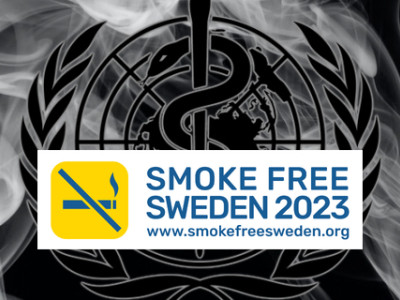Dr Michael Businelle has received the grant to conduct a study on the app’s effectiveness and compare it to other types of cessation tools. The OTRC say: “In a time when most people have smartphones, almost always within arm’s reach, such technology is proving to be a valuable means of behaviour change.”
Businelle says: “Statistics show that nearly 80 percent of smokers want to quit, but without help, less than 5 percent are successful. People spend a lot of time on their phones, particularly texting and using apps. I see health behaviour change services like smoking cessation becoming more and more mobile.”
The OTRC proudly state that Businelle has spent several years developing this app: “He loaned smartphones to participants who were prompted by the app to answer about 25 questions at five different times during the day. The questions asked about things like current urge to smoke, motivation to quit, access to cigarettes, and whether they had consumed alcohol recently. The questions were then narrowed down to the six most relevant, which were used to create a smoking lapse risk estimator that determines whether a person is in danger of relapsing in the next few hours.”
Businelle added: “Our research showed that the risk estimator predicted about 80 percent of all smoking lapses within four hours of the lapse. Sometimes the risk estimator would know about the potential for relapse before the person was aware of it.”
Success criteria appear to be restricted in order to assure a successful outcome to the study. Previously, Businelle only compared his Smart-T app with attendance at smoking-cessation counselling sessions and an app developed by the NIC. Mention of comparing it to vaping, the most popular form of smoking cessation, is conspicuous by its absence.
“If individuals indicate that their current stress level is high, they immediately receive a message about coping with stress. Or if they report their motivation to quit is low, they receive a message that aims to increase motivation.”
While it is good that a variety of options are available to smokers to help them quit smoking (if that is what they want), the NCI needs to start taking on board the wealth of studies demonstrating that vaping offers an excellent route away from tobacco-related harm.
Resources:
- National Cancer Institute - www.cancer.gov
- Dr Michael Businelle - https://otrc.stephensoncancercenter.org/About-Us/Faculty/FacultyDetails/michael-businelle-phd-1
- Related SmokEnders app article - https://www.planetofthevapes.co.uk/news/vaping-news/2019-01-24_quitting-vaping-guff.html
Dave Cross
Journalist at POTVDave is a freelance writer; with articles on music, motorbikes, football, pop-science, vaping and tobacco harm reduction in Sounds, Melody Maker, UBG, AWoL, Bike, When Saturday Comes, Vape News Magazine, and syndicated across the Johnston Press group. He was published in an anthology of “Greatest Football Writing”, but still believes this was a mistake. Dave contributes sketches to comedy shows and used to co-host a radio sketch show. He’s worked with numerous vape companies to develop content for their websites.
Join the discussion
Harm Reduction For The Rich
The United Kingdom risks becoming a harm reduction country only for the wealthy, according to Michael Landl of the World Vapers’ Alliance
CAPHRA Highlights Tobacco Control Flaws
The Coalition of Asia Pacific Tobacco Harm Reduction Advocates highlights the flaws in tobacco control which has led to the rise of black market in Australia
A Missed Opportunity at COP10
The Smoke Free Sweden movement says that COP10 was a missed opportunity to save millions of lives
COP10: Promote Tobacco Harm Reduction
Experts with Smoke Free Sweden are emphasising the urgent need for a Tobacco Harm Reduction approach at COP10












